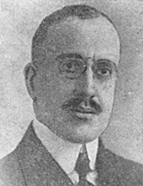

The practical outcomes of these theories, whether Ferrão’s own or those of others, can be found in works of purely historical analysis, some of which have already been mentioned. In the first and only volume of Reinado de D. Miguel [Reign of King Miguel], comprising over 700 pages and dedicated to the siege of Oporto, published in 1940 while Ferrão was a member of the Military History Commission, he provides a detailed and descriptive interpretation of events. Given his republican, liberal, and positivist stance, Ferrão continues a long-standing tradition of criticising the Viscount of Santarém, particularly over his handling of the Roussin affair, both naval and diplomatic. Ferrão directs harsh criticisms and insults at Santarém, suggesting that such attitudes were the result of stubbornness and folly, especially since, by 1831, the "winds of history" were so evident that only obstinacy could explain certain political convictions and actions (pp. 20 ff). However, the author does attempt to provide a general assessment of King Miguel's regime in cultural and academic terms, a task that remains incomplete to this day (pp. 157-159).
In conclusion, António Ferrão was a significant figure in literature and in the dissemination and theorization of history from the 1910s to the 1940s. He was a vocal disciple of Teófilo Braga—a republican, agnostic, and positivist—who viewed historical science, along with academic and popular pedagogy, as a means of addressing the moral and civilizational crisis exacerbated by the First World War and, domestically, by the First Republic. Ferrão served as a link between various groups of 19th-century scholars and historians and those of the second half of the 20th century, much like António Baião did.
